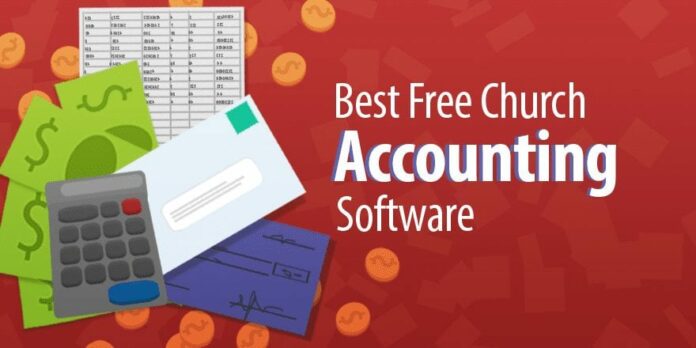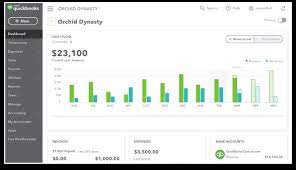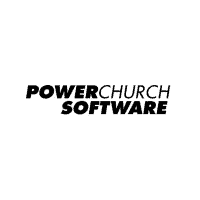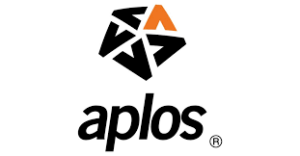Best church accounting software will be discussed in this article. Most churches operate in a similar manner to many businesses, therefore having the correct accounting software is critical. We’ll take a look at the best church accounting software available right now, as well as other platforms that may be suitable for your ministry.
One of the most frequently asked topics is how to select a platform that is specific to the church. We’ll go over why we chose the programmes we did later, but the short answer is that we need to track things like donations and handle non-profit business characteristics.
Top 5 Best Church Accounting Software in 2022
Top 5 Best Church Accounting Software are explained here.
The following is a checklist of the top church accounting software, in our opinion. This is a list that will continue to evolve as new goods and features in existing items become available.
When it comes to church accounting software, there are a few options to consider.
We’ve taken our picks for the best church accounting software and written detailed reviews to explain why they rank where they do. We’d like to point out that, despite the fact that they’re ranked one through 10, the best option for one church may not be the best option for another.
So, take some time to read over each review and attempt to figure out which software is ideal for you. All of them have some sort of connection to the key practises that you’ll need in a ministry, although they perform differently.
1.QuickBooks
QuickBooks is one of the most well-known and widely used accounting programmes available. It’s a simple recommendation based on this, but we’d like to go a step further and promote their “Premier” platform. Also check charity auction software
The ordinary online version is cloud-based, while the Premier edition is not. You lose the ability to access this when on the road, but you gain a lot more, which is very useful for churches.
The addition of doing accounts for nonprofit businesses is the key benefit. This category includes ministries and churches, which means you may quickly and easily create accounts that are tailored to their needs.
The donor function is another feature that you’ll want to take use of. This enables you to record money from donors and even prepare end-of-year statements solely based on this information.
The only criticism we have is that it is geared for smaller churches, and larger congregations may find it restrictive. There is, however, a fix for this that falls within the Breeze umbrella.
Breeze is a QuickBooks add-on that gives you access to a number of features that aren’t available in the standard product. Volunteer management, email marketing, events, and online giving are just a few examples. The date is then entered into QuickBooks and filed in the proper areas.
QuickBooks Premier is priced at $549 per year, with no option to pay in monthly instalments. This package only includes one user, and extra users cost $300 apiece. However, for an organisation that several individuals can access, you only need one user, therefore this shouldn’t be a problem.
Enterprise is a more expensive option that can be accessible, with rates starting at $938 per year. You receive more users, a greater capacity, additional report templates, priority customer assistance, and a variety of other features tailored to larger congregations.
Pros • Excellent for nonprofit organisations such as churches • The Premier edition is preferable to the online version for churches • Ability to add donations to financial sheets • Numerous addons that make it appropriate for any growth
Cons
- Expensive for smaller churches • Data is not stored in the cloud
2. PowerChurch
PowerChurch is unusual in that it is one of the few platforms created specifically for use by churches. It’s been around since 1984, and while the appearance hasn’t altered much, it still performs very well.
There are two versions available: an online version and a downloaded programme. The advantage it has over QuickBooks is that both platforms are identical and may be linked together. This means you can have one at work and use the same product on the fly.
The software can keep track of all you need for your church’s day-to-day operations. This covers information such as membership status, gifts, and income/expenditure, as well as where money can be saved through taxes.
It comes with a number of add-ons that you can use to supplement the basic platform. One is email marketing, and the presence of membership management features impressed us as well. These may be things you’re already paying for and want to bundle into a single package if your church or minister is growing.
Pricing
PowerChurch has a one-time charge of $395 for the download version and $415 for the physical media version (CD). For $159, you can upgrade existing platforms if you’re using the free or trial versions. It’s worth mentioning that there are no memberships here, making it a fantastic deal.
- Huge selection of add-ons that make it future proof for growing congregations • Great value for money over monthly packages
- It’s incredibly adaptable because it’s available both online and as a download.
- Payroll, donations, gifts, membership accounting, and other capabilities are all included in this dedicated software.
Cons
- A severe learning curve, primarily owing to the archaic design
3.Aplos
Aplos is one of a number of cloud-based accounting programmes built specifically for use by churches. Aplos’ creator was a former pastor, so they understand what it takes to keep things running smoothly.
The platform’s value for money, which we’ll discuss next, is one of its highlights, but it’s also ideal for smaller churches wishing to expand. We would definitely agree that there are better solutions for a well-established, huge church, but Aplos will serve those with fewer needs admirably.
The site is one of the more attractive we’ve seen and is incredibly simple to use. The move will be seamless if you have someone in-house who is even vaguely familiar with general accounting software. If the church is beginning from scratch, Aplos contains a wealth of tutorial films to help them get up and running quickly. Also check social media marketing software
To be honest, there aren’t many drawbacks, however it doesn’t include any payroll services. Gusto can be used to add these on, but there are additional fees involved.
Pricing
Aplos is available for as little as $39.50 per month, which is about as little as you’ll find for a system of this calibre. You can easily upgrade packages to Aplos Core and Core +, and as you might guess, you get more of everything you get with the Lite edition.
It’s also worth noting that if you pay for a year in advance, you’ll save 10%. We strongly advise you to give it a month to see whether it works for your church, and if it does, sign up for the 12-month commitment.
- Funding accounting, donation monitoring, online giving forms, and giving reports are all available.
- Excellent value for money, with the option to pay by the month rather than by the year (although paying by the year is cheaper) • Developed by a former pastor • Simple to use with a short learning curve
Cons
- It’s limited in terms of how far you can take it • A lot of extra features require additions, which raises expenses
4. Realm
Realm is a touch lighter than some of the other things we’ve discussed so far. Realm is likely to be worth a look if you’re seeking for basic accounting software that works well for churches and NGOs.
The platform is one of the more attractive we’ve seen, and while it lacks some capabilities compared to others, it’s quite straightforward to use and integrates with both UK and US accounting software.
One of its most notable aspects is its customer support team, which has received industry recognition for its efforts. Given the likelihood that most church teams will be unfamiliar with accounting software, this is a big plus and a feature that should not be neglected.
Pricing
To get a price, you’ll need to contact Realm directly, but we can tell you that pricing starts at $29 per month. This gives you basic, single-user access, which should suffice for the majority of users who use this platform. The pricing will climb as you add more users and features.
Pros • Easy to use with a short learning curve • One of the top customer service teams in the industry • Easy to generate account performance metrics
- Numerous church-related capabilities, such as nonprofit accounts and contributors • Reasonably priced base package
Cons
- When compared to the competitors, it feels light. • It lacks integrated features.
5.FreshBooks
FreshBooks isn’t specifically designed for churches, but it is one of the most popular, and you could easily adapt it to any type of business, including a nonprofit. You receive a big support bubble with FreshBooks, not only from the firm, but also from dedicated forums and websites, so you can’t go wrong.
We loved how you could link bank accounts and had extremely simple reporting. It is possible to have it track both donations and income, albeit we must acknowledge that it is not as reliable as we would want. Also check SEO software tools
FreshBooks is one of the most user-friendly platforms, and if we had to make a single suggestion based just on simplicity of use, it would most likely be this one. Although there are better solutions for churches, like as QuickBooks, FreshBooks is without a doubt one of the finest in class for the money you will pay.
Pricing When it comes to money, FreshBooks starts at $15 per month or $180 per year. This is the most affordable edition on our list, and it includes 5 billable clients, configurable invoices, automated bank import, and donation access.
As you progress through the tiers, these expenses will, of course, skyrocket. Premium starts at $50 per month and includes email and project profitability, both of which are beneficial to churches.
Pros • Simple to use • Large internal and external support network • Good value for money for the base package
- Ability to connect bank accounts to FreshBooks and instruct it to highlight when donations arrive
- There isn’t as much focus on a church’s needs.
What is Church Accounting Software, and how does it work?
Church accounting software is used to keep track of the accounts that a church generates. A church is expected to keep accurate accounts of money that comes in and goes out, just like any other business, which the software will track for them.
A church is classified as a nonprofit organisation in terms of “business.” This implies that they bring money in, and any money left over after expenses is donated to charities or re-invested in the community in some way.
A church can use almost any accounting software they desire. They all operate in the same way and are fundamentally part of the same platform.
Dedicated church software, on the other hand, will always be preferred because it will offer capabilities that are required for the day-to-day operations of a church.
Donations are an excellent example of this. Donations, like sales in a store, will account for the majority of a church’s revenue. Because most accounting software does not include donations, the workaround is to record them as revenue in the software and then adjust them as donations when entering accounts.
All of this will be handled automatically by the best church accounting software. On this page, we’ve mentioned a few programmes, and to be honest, they all have their own benefits.
What is the Process of Using Church Accounting Software?
Church accounting software, for the most part, functions similarly to a “regular” accounting product. The basic idea is that it keeps track of money flowing in and then out. It then generates a profit and loss account based on this information before providing you with the means to submit it to whichever financial regulatory authority requires it.
It’s clearly a lot more complicated than that, and as a result, there are a lot of moving components. Let’s take a look at how church accounting software might work in practise.
Let’s pretend we’ve signed up for QuickBooks Premier, the best church accounting software on the market right now, according to our poll.
QuickBooks will walk us through the process and connect our church’s bank accounts to their software. When you first perform this, it will import earlier statements up to the timeframe you specify.
The software will continue to follow the accounts once the initial link has been established. Any money coming in or leaving out will be put into their software, allowing the church to keep track of everything.
The software excels at producing reports. These reports are vital not just to identify which parts of the business (in this example, nonprofit churches) make the most money, but also to see which parts of the business (in this case, nonprofit churches) spend the most money. QuickBooks will even make recommendations on how to enhance some aspects.
Donations are one of the most important aspects of church accounting software. The majority of the money will come in the form of gifts, which must be presented differently than income from sales and invoicing because it will not be taxed.
A platform like QuickBooks will recognise that you have a nonprofit (as you told it when you started it up) and create tax accounts based on that information. You can even connect your software to tax accounts like HMRC and upload your accounts promptly this way.
What Are the Benefits of Using Accounting Software in a Church?
There are a number of reasons why you should choose customised church accounting software over generic alternatives. We’ve listed a few of them below:
- Ease of use – Dedicated church accounting software is usually more user-friendly. This is because the programmes are less likely to be handled by specialist financial teams, so if you make them overly intense, they won’t work as effectively.
- Dedicated features – The majority have dedicated features that only a few businesses would want. Donation tracking and membership databases are examples of these. These two revenue streams account for nearly all of a church’s income, but a for-profit firm is likely to have none.
- Lower expenses — Churches frequently have limited funds for things like accounting software, and the dedicated platforms tend to reflect this. For example, you may get started for as little as $15 per month, but most larger platforms will cost you twice as much.
- Direct accounting — Most accounting software will connect to government accounts, such as HMRC, allowing you to upload accounts immediately. This saves a lot of time and eliminates the need for a full-time accountant.
Conclusion – Which Church Accounting Software Is Best?
QuickBooks is the greatest church accounting software on the market right now. There are two versions of QuickBooks to choose from, but we recommend the Premier edition.
It’s not the cheapest, at roughly $50 per month, but it’s unrivalled in terms of features. The key attraction for churches is its capacity to track and classify both donations and memberships. It’s simple to use, and there’s plenty of help for new and experienced users who want to improve their productivity.








